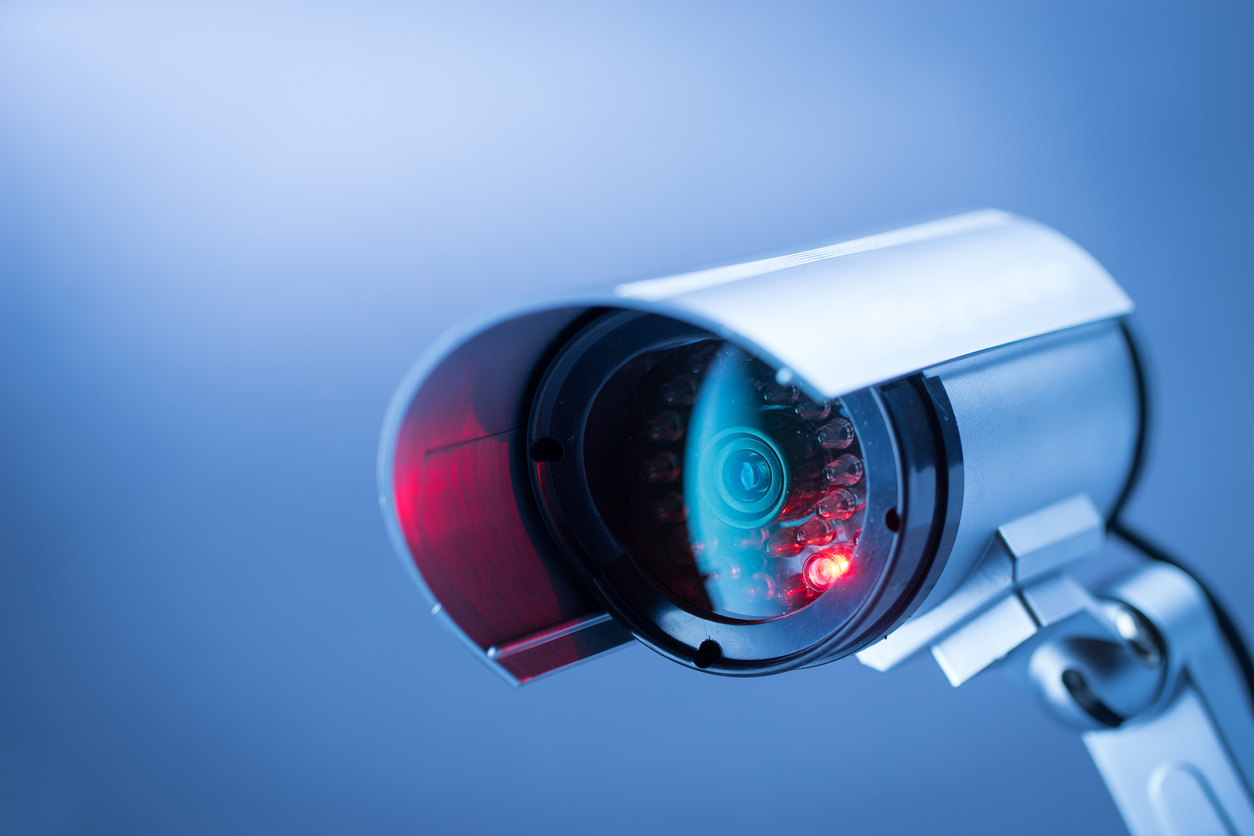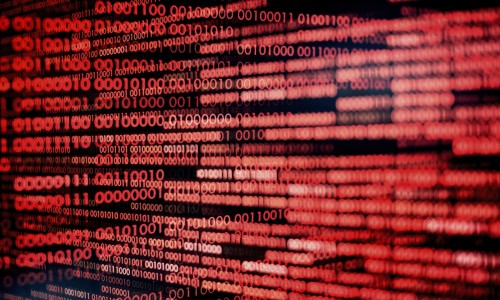
How Does CCTV Work?
8 August 2022
If you’re a business owner, you know that security is one aspect you need to take seriously. While alarms and door access control systems are important, video surveillance or CCTV is another security solution every business needs to invest in.
In this article, we’re going to explore everything you need to know about CCTV including:
- What CCTV is and a brief history
- How CCTV works
- How CCTV video is stored
- The benefits of installing CCTV on your business premises
CCTV – What Is It?
CCTV is short for ‘closed-circuit television’ and it was invented in 1942 by Walter Bruch for German scientists who used the new technology to monitor the launch of their V2 rockets. Near the end of the 1940s, it became available to the public as a commercial product and it was quickly adopted by an American company, Vericon, who sold it as security surveillance for the US government & businesses.
However, it wasn’t until another decade later (in 1960) when CCTV came to the UK. During this time, CCTV technology was very limited and it only allowed for monitoring and streaming the video– it wasn’t able to store the footage.
Today, CCTVs are fully capable of recording and come with a host of features, such as automatic sensors to turn on when movement is detected, infrared sensors, recording audio, and much more.
CCTV – How Does It Work?
There are many different types of systems and setups for CCTV, but we will give a general explanation of how it works. Every CCTV has a few main components: a camera & lens, a monitor to stream the video, and a recording device. Some systems require wires to connect them all together. However, there are some systems that allow for wireless transmission of the data from camera to monitor to recording device. It’s called “closed-circuit” because the broadcast is completely internal.
The camera works by taking a series of images which are then relayed to the monitor where a person can watch it as a video. At the same time, the video is being recorded or uploaded to a storage device (which we will go more into in the next section).
In the past, the technology was limited, and often ended up with a grainy and low-resolution video. Today, however, they come with advanced features, such as full 4K resolution, the ability to zoom and rotate the camera, wireless broadcast where you can view the feed from anywhere, and search capabilities so you can automatically go to relevant sections (such as motion detected).
CCTV – How is Video Stored?
It used to be that CCTV was stored on VCR tapes. However, they offered limited storage capacity and required someone to swap out the tape regularly. If the tape was full, then the footage was lost.
Today, there are a few different video storage options available depending on your business needs and resources. They are:
Server (DVR/NVR) Storage
Server-based storage is a common choice for most businesses. These include Digital Video Recorder (DVR) or Network Video Recorder (NVR) which are external systems which hold the video footage on a single or multiple hard drives. DVRs are the traditional setup that works well with analogue cameras. NVR is IP-based, and the video can be wirelessly transmitted to an app or external monitor.
Depending on your needs, you can have them stored on-premises or off-site for enhanced security. Typically, the storage capacity ranges from 8TB to 32TB. And though that seems like a lot of space, recording in high-quality can fill it up fast for CCTVs that run 24 hours a day, 7 days a week.
SD Card Storage
Some cameras come with built-in storage, and if you only have one or two, you can use SD cards to save the data from them. Since SD cards are small, they cap out at around 2TB of storage space. This makes them ideal for cameras that aren’t on constantly and only record when triggered by motion detection or alarm detection. They’re also useful as a backup to your main storage device.
Cloud-Based CCTV Storage
Cloud-based storage is attractive because it doesn’t require a complete setup and video is stored by a third party, which can be viewed anytime from anywhere. The only requirement is an internet connection so the camera can send the video to the cloud. It’s also beneficial because you can purchase as much storage as you need when you need it. Plus, it protects the footage from adverse events such as theft and environmental damage such as floods or fires.
CCTV – Legalities in the UK
There are laws and regulations dictating the use of CCTVs in the UK. These are covered by the Data Protection Act (DPA) and must be followed when you use CCTV in the country.
You Must Control Who Can Access CCTV Footage
Only authorised individuals are allowed to access CCTV footage; i’s incumbent on the data controller and operator to ensure the footage is protected. The DPA stipulates that there must be clear responsibilities and procedures for the effective administration of CCTV surveillance.
This means all recorded videos must be stored in a secure location and on a medium that can’t be easily tampered with or destroyed, such as a hard drive or the cloud.
People Must Be Clearly Informed They Are Being Recorded
The DPA requires you to also inform people they are being recorded as transparently as possible. This gives them the ability to exercise their right to access the footage and dispute the way it’s being used. This can be achieved by clearly posting a sign to let them know the recording is in progress.
People Must Be Informed WHY You Are Recording
The DPA also requires you to inform people of the reasoning behind why you are recording. And it’s your responsibility to ensure the CCTV is only being used for its intended purposes, e.g. a crime deterrent or monitoring staff.
Also, if you’re recording employees, you must clearly, and in writing, express that it’s happening and why.
It’s Illegal to Record Public Conversations
DPA regulations state that it’s illegal to record private, public conversations. If you want to record audio of workers, everyone on-site must know they’re being recorded and it must be for a specified purpose.
You Must Delete Footage When It’s No Longer Needed
You’re legally obligated to delete stored CCTV after a retention period of 14 to 31 days, depending on your property type and your incident risk level. Additionally, it doesn’t make financial sense to hold on to the data for longer periods because you will incur costs associated with increased storage needs.
CCTV – Why Your Business Needs It
Regardless of your business type, there are multiple benefits that come with owning and installing CCTV around your property. These are the top 5 benefits that come with CCTV for businesses:
- It Prevents Crime
When people know they’re being watched, they’re less likely to commit crimes. Criminals know their faces and actions are being recorded, and it increases the risk they’ll be caught. For this to work, CCTV cameras need to be clearly visible and overlook valuable targets such as merchandise or money.
- You Can Catch Criminals in the Act
Some people aren’t deterred by cameras and will still do their dirty work. When this happens, CCTV gives you clear evidence to help in their prosecution. It also helps protect you and your business from falsehoods and other ways people might try to defraud you.
- It Increases Safety for Clients, Customers, and Staff
Protecting staff, clients, and customers should be at the top of your priority list. CCTV allows you to see who is coming and going, and you can also monitor staff activity to make sure everyone is doing well. CCTV is an easy way to create a safe and secure environment for everyone on your premises.
- It Can Lower Your Insurance Costs
Insurance companies view properties with CCTV as more secure and protected than those without. Since CCTV acts as a crime deterrent, you’re seen as less risky and less likely to file a claim, which means they will charge you a lower premium.
- It Will Give You Peace of Mind
CCTV is like having multiple eyes watching everything at once, even if no one is around. It helps give you peace of mind that intruders and thieves are kept at bay. And if something goes wrong, you have the evidence to make sure they pay for their crimes.
ICT Solutions Can Give You Peace of Mind
CCTV is a simple but effective way to secure your staff, customers, and property. If you’re looking for CCTV installation, service, or maintenance to reap the benefits of the system, then look no further than ICT Solutions.
We have a four-stage process for installing CCTV; from undertaking a thorough survey of your premises and designing the perfect security system, to installation and testing, we’re confident that we can give you the peace of mind you need to run your business effectively.
Get in contact today to speak with one of our friendly professionals, and we’ll be happy to assist with all your CCTV needs!



